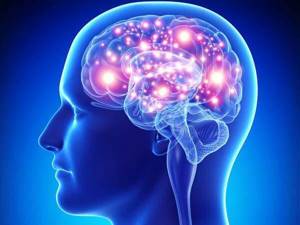A proper breakfast can make us more alert, give us strength for the whole day, help maintain normal weight and even keep our heart healthy.
It turns out that our mothers were right when they said that the most important meal for the body is in the morning. Research shows that eating a healthy breakfast provides many benefits to the body. This meal is especially important for children and adolescents. According to the American Dietetic Association, children who eat breakfast every day study better, are more active on playgrounds, and are less likely to suffer from inattention and eye diseases. Researchers also say that the bodies of children who do not skip their morning meal contain 20-60% more iron, B vitamins and vitamin D.
Interesting facts about breakfast
Content:
- Interesting facts about breakfast
- Why is breakfast so important?
- What does a proper breakfast look like?
- How to choose breakfast foods
- How to train yourself to eat breakfast
- If you still don't want to eat
Many historians suggest that until the 15th century people did not eat breakfast: in ancient times it was customary to eat once a day, but very heavily. The meal in those days was reminiscent of a modern lunch. It is difficult to say when and in what connection the tradition of having breakfast appeared, but it is known for sure that at first the courts consumed bread, butter and cheese in the morning. Over time, the appetites of the nobles grew and after sleep, many began to eat fish or chicken dishes. Researchers also say that during the time of Henry IV, there were special rooms in the palaces intended for the morning meal. It is interesting that in those days, European nobles were served not tea or coffee, but wine or beer for breakfast. But Peter I, according to historians, was also a gourmet! In the mornings, the Russian emperor liked to drink hot chocolate. And Catherine the Great’s breakfast was completely reminiscent of a modern one – a cup of coffee and toast. By the way, the fashion for eating cereal flakes in the morning appeared around the 40s of the 20th century. The reason for the new fashion was an advertising campaign to promote corn flakes, which was launched at that time in the USA.
But breakfasts became most popular during the era of industrialization. To survive a shift at the factory, members of the working class could not do without a hearty breakfast. In the era of white collar workers, everything has changed and many people drink nothing but black coffee before lunch, although nutritionists are categorically against this fashion.
Why is breakfast so important?
Breakfast is the most important meal. Eating food in the first two hours after waking up plays several important functions:
- restores glycogen reserves in the body;
- activates metabolism;
- provides energy for the whole day;
- after an overnight fast, it supplies “fuel” to the muscles and brain.
Experts have calculated that in order for the body to experience all the benefits of breakfast, the first meal should take place within the first 2 hours after waking up. In addition, it is important that the calorie content of breakfast ranges from 20% to 35% of the daily diet.
It's hard to find a nutritionist who will tell you that skipping breakfast is good. However, as Americans have calculated, there are at least 31 million people among their fellow citizens who regularly skip their morning meal. The situation is similar in most other developed countries of the world. Researchers suggest that about a quarter of the world's population skips breakfast at least once a week, and 13% of them never eat breakfast at all. As for women, about 30% of them say that they don’t eat anything in the morning because they simply don’t have time for it, and another 14% believe that not eating in the morning allows them to maintain their figure. If you are also one of the opponents of breakfast and do not plan to change your nutrition program, then you can be sure that your body will not experience at least six benefits.
Weight under control
Data from various scientific studies indicate that people who regularly eat breakfast are 4 times less likely to suffer from obesity. Researchers have found several facts that explain this phenomenon.
One theory is that eating a healthy breakfast can help reduce your appetite throughout the next day. Many people believe that by skipping the morning meal, they can reduce the total calorie content of their daily diet. But research shows that this strategy doesn't work. As a rule, breakfast opponents come to lunch with strong hunger and usually, without noticing it, eat more high-calorie foods in large portions. As a result, it turns out that even without breakfast, the daily calorie content of the diet goes far beyond the norm. Researchers at the University of Missouri found that after eating a protein-rich breakfast, people eat less throughout the day, and their lunches are lower in calories than those who skip breakfast. Israeli scientists have discovered that if you eat half of your daily calories for breakfast, then within 3 months of eating this way you can get rid of 8-9 kilograms of excess weight without much difficulty.

There is another theory about the relationship between eating breakfast and maintaining a healthy weight. Experts have concluded that in most cases, people who eat breakfast generally lead a healthy lifestyle. They usually include healthy foods in their diet that do not contain “empty” calories, try to eat a balanced diet, and at least occasionally exercise. During the experiment, American scientists observed overweight people who agreed to slightly reconsider their usual diet and physical activity. Participants in the experiment began to eat breakfast regularly and exercise moderately. The only condition put forward by him is to eat healthy breakfasts containing proteins and whole grains. To the great surprise of the participants in the experiment, within a year, 80% of them lost almost 15 kilograms.
Always energetic
Our bodies perceive food as fuel. In order for the body to function adequately, it needs energy, that is, food. Without breakfast, the body finds itself in a very unenviable situation. For quite a long time (from dinner to lunch) he has to work without “fuel”, which affects his overall activity and productivity. Therefore, in order to restore energy and strength, the body must receive a portion of high-calorie food in the morning.
Reduces the risk of developing diabetes
Globally, diabetes is one of the most common diseases. Endocrinologists name different causes of this disease. One of them is eating disorders. In particular, scientists found that irregular consumption of breakfast increases the risk of developing type 2 diabetes by several times (from 2 to 21%). Moreover, women are more susceptible to this danger (possibly due to the abuse of “starvation” diets).
Benefits for the Heart
Doctors say the cause of every third death is cardiovascular disease. Sad statistics, isn't it? Moreover, most cardiac problems can be prevented by following a healthy lifestyle. And recently, researchers found that men ages 45 to 82 who ate a healthy breakfast daily were about 27% less likely to develop heart disease, especially coronary artery disease.
Improves memory

Did you know that eating breakfast can significantly improve your memory? Experts examined the results of 22 studies on breakfast and cognitive function. It turned out that children who eat cereals and proteins in the morning demonstrate better memory and good learning ability. Why is this happening? A morning meal allows you to saturate your body with carbohydrates, and they are indispensable for the proper functioning of the brain. In addition, we must not forget that before breakfast, the body, including the brain, did not receive “fuel” for 8-12 hours. And without fuel, any mechanism refuses to work.
Boosts immunity
Dutch scientists have discovered a relationship between breakfast and the state of the immune system. It turned out that a hearty breakfast stimulates the body's production of interferon gamma, a natural antivirus responsible for immune function.
Researchers from Cardiff University (UK) also claim that people who skip breakfast are more susceptible to infectious diseases.
Strengthens bones
Regular morning meals can be good for our bones. Japanese scientists think so. They studied the state of bone tissue in people with different attitudes to breakfast. As it turned out, people whose day starts with a healthy meal have noticeably higher bone density than those who don’t eat breakfast.
Problems with the heart and menstrual cycle occur
American researchers have noticed that many people who want to lead a healthy lifestyle refuse breakfast because they are too busy with their morning exercise - marathon runs, exercise classes. Scientists from Harvard University, USA, conducted tests and found that almost 31 million Americans skip their breakfasts. But at the same time, men have a 27% increased risk of heart attack or other cardiac diseases. And in women there is a 19% chance of disruptions in the frequency of the menstrual cycle. Although researchers have not determined the direct cause of such disorders, they suspect that being in a state of fasting every morning is stressful for the body, changes occur in the functioning of the endocrine system, which ultimately negatively affects lipid synthesis. In other words, this increases the accumulation of so-called “bad” cholesterol, which is deposited as plaque in the arteries, increasing the chances of vascular problems. In women before the onset of menopause, the development of such pathologies has not been confirmed. But a violation of lipid synthesis is marked by a malfunction in the ovulation function, which, in turn, often becomes the cause of the development of infertility. Thus, American researchers have established a probable connection between the constant refusal of breakfast and the occurrence of cardiovascular diseases, as well as problems with female sexual reproduction.
What does a proper breakfast look like?
A nutritious breakfast is a key element in a healthy eating program. Properly selected foods will, firstly, help jumpstart metabolism, and secondly, provide the body with energy until the next meal. Nutritionists advise that your morning menu should be composed of foods rich in proteins, complex carbohydrates, healthy fats and fiber.
Boiled chicken eggs, low-fat milk, natural yogurt, and cottage cheese can serve as a good source of protein for breakfast. It is useful to get carbohydrates in the morning from porridge and a few slices of whole grain bread. To restore the reserves of fatty acids necessary for the body, it is useful to include avocado and a little olive oil in breakfast.

Excellent options for the morning include oatmeal with fruit and yogurt, fruit salads, fried or boiled eggs with vegetables.
Nutritionists call protein food an important part of a healthy breakfast. Proteins perfectly satisfy hunger and keep you feeling full for a long time. That is, after a protein breakfast, a person remains full until lunch, thereby avoiding extra calories in the form of unhealthy snacks.
The most popular protein breakfast is chicken eggs. By the way, in terms of calorie content, two eggs correspond to one medium loaf. But people who choose the second option for their morning meal are more likely to suffer from obesity and high cholesterol.
Scientists from Harvard University studied the morning diet and weight of more than 17 thousand people. Scientists found that the least overweight people in the group ate cereals in the morning.
There is a risk of developing diabetes
Many nutrition experts claim that skipping breakfast can help you lose weight. The fact is that the lack of energy in the morning leads to a drop in blood glucose levels. At the same time, in a healthy person, protective mechanisms are immediately activated that normalize sugar, using energy from subcutaneous and internal fats. However, scientists from Southern California University of Health Sciences, Whittier, USA, based on their research, claim that this practice leads to diabetes. They found that people who did not eat breakfast regularly increased their risk of developing type II diabetes by 20%. Firstly, the development of the disease is influenced by surges in blood sugar levels - first it drops, then the body independently brings it to the lower limit of normal, and after the expected energy comes from food, the levels soar to the highest critical levels. Scientists call the second point impaired glucose tolerance. All nerve connections and neural impulses in the body function on this nutrient. If there is a shortage, trying to replace them, an acidosis phenomenon develops in the blood, that is, its oxidation begins. A person is able to notice such a moment himself; the smell from his mouth changes sharply, it takes on notes of the aroma of acetone. Often, such periodic changes lead to the development of endocrine imbalance, and in particular, to disturbances in the functioning of the pancreas and its own insulin production. Therefore, constantly refusing breakfast is a direct path to the development of diabetes.
How to choose breakfast foods
To make your morning meal truly healthy, it is important to choose the right ingredients for it. A healthy, balanced breakfast can consist of several food groups, including fruits, vegetables, grains, proteins and dairy products.
You can often hear that people refuse their morning meal only because they don’t have time to cook. In fact, there are many delicious and healthy recipes for morning dishes that will take no more than 5 minutes to prepare.
Options for a quick but healthy breakfast:
- whole grain sandwich with feta cheese or other cheese, favorite drink;
- scrambled eggs, tomato, rye bread sandwich with ham;
- boiled eggs, a slice of bread, a banana;
- fruit smoothie with natural yogurt;
- a slice of baked fish, a sandwich with cream cheese;
- whole grain cereals with fruit and milk;
- natural yogurt with fruit.
Body weight will increase
Many people have heard that if you skip breakfast, the next meal will be double the amount. A hungry person will consume so many calories that it will definitely affect his body weight. Many researchers have tried to find out whether this is true or not. The American Journal of Clinical Nutrition even published an article stating that in fact, neither a very hearty breakfast nor no breakfast will ruin your weight. A group of American nutritionists conducted an experiment with their overweight patients. They were divided into two groups: in one, the subjects ate breakfast as usual, and in the other, they did without a morning meal. None of them lost weight, but neither did they gain weight. However, endocrinologists from Yale University, USA, remind that the activity of metabolic processes in humans is maximum only in the morning. As a rule, this is from 7 to 10 o’clock, and metabolism does not depend on whether a person feels awake at this moment or not. It is in the early morning that the body's main hormones are released, and for the endocrine system to function effectively, a timely supply of energy is required. It is no coincidence that in all European cultures breakfast is considered a meal only before 10 o’clock in the morning, and then it is called differently. It is until this time that one should not skip a snack if a person wants to have a normal metabolic process. Eating at later hours often leads to the balance in the body being disturbed, metabolic processes are inhibited, and everything eaten in excess is deposited in lipid tissue. So those who ignore the real morning meal run the risk of becoming overweight, which they will not be able to get rid of easily and quickly later.
How to train yourself to eat breakfast
Many people understand that they need to eat breakfast, but after several years of living without a morning meal, it is difficult for them to adjust to a new regime. If you also belong to such people, we suggest taking the advice of nutritionists:
- Develop a breakfast habit. You may not have an appetite at first in the morning, but it is important to force yourself to eat. Even if at first it will be tiny portions of food, over time the body will get used to accepting food in the morning, and after a week you will not be able to imagine the morning without breakfast.
- Prepare for your morning meal in the evening. If you are one of those who refuse breakfast, citing lack of time, then this excuse will lose its relevance if you prepare everything you need in the evening. If the dish cannot be prepared in advance, then make sure that in the morning you know exactly what breakfast will look like and that you have all the necessary products at hand.
- Drink a glass of water immediately after waking up. This will not only restore the fluid balance in the body, but also activate the motility and secretory function of the digestive system. Within 15-30 minutes after this you will feel a decent appetite.
- Start doing exercises in the morning. Physical activity will burn calories, after which the body will definitely require “refueling”.
Performance indicators decrease
Another point of view, which is often held by people who refuse breakfast, is that in the morning it becomes easier to start moving actively, because the body is like feathers. In fact, it's exactly the opposite. Scientists from the University of Bath, United Kingdom, say that a drop in blood sugar caused by skipping meals can lead to feelings of fatigue and even headaches. Researchers suspect that the longer the body remains in a state of starvation, the more this stress affects it and the harder it becomes to work. A person who refuses breakfast feels weak, lethargic and is unlikely to go, for example, to the gym, even in the evening. Because he will never have energy, strength, and will not have the mood. British scientists believe that skipping breakfast is a missed opportunity to feed your body dopamine and serotonin. The fact is that many years ago a connection was proven between morning food consumption and the balance of neurotransmitters produced by brain structures. Therefore, missing a morning meal not only causes irritation and stress, but also negatively affects cognitive function. Studies have shown that schoolchildren perform better on exam tests 20 minutes after eating breakfast because the sugar and carbohydrates in the body instantly optimize cognitive focus and memory. These substances are essential fuel for the brain, and the absence of breakfast inhibits the functioning of most of its cognitive functions. Thus, the constant absence of a morning snack leads to a deterioration in the functioning of not only muscles, which simply lack energy, but also brain structures. Every morning a person finds himself weak, tired and incapable of intellectual activity.











